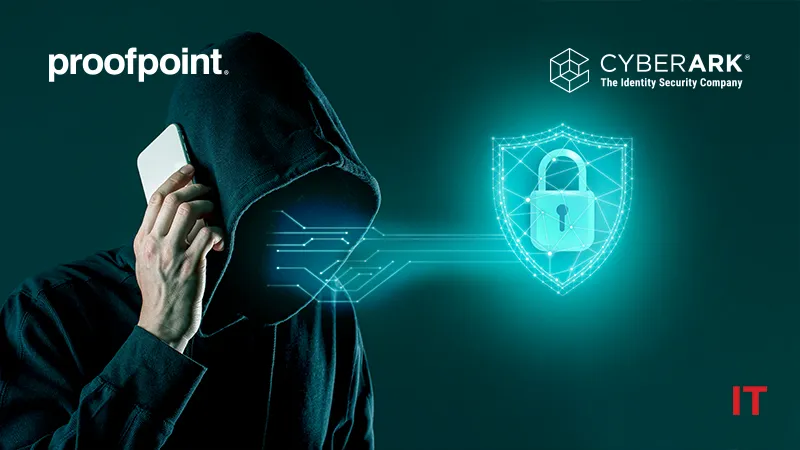Proofpoint, Inc., a leading cybersecurity and compliance company, and CyberArk, the identity security company, announced an extended strategic collaboration, working together to help organizations around the world secure identities everywhere. Supporting this joint aim, the expanded partnership includes the launch of new integrations and solutions to address critical cyber challenges.
Securing Identities Across the Enterprise
Digital transformation and the cloud have altered infrastructures, while mobile technologies and remote access have changed how people work. Traditional endpoint and network-based controls are inadequate given today’s threat landscape—one where identities are the new perimeter and have become critical for organizations to secure. With attackers increasingly exploiting identities thanks to the potential wide-ranging access they enable, 93% of organizations suffered two or more identity security breaches in the past year. The exponential growth of identities coupled with evolving attack techniques underscores the critical need for a paradigm shift towards identity-centric security strategies.
Threat actors continue to target identities as the most effective way to land in and expand their access to the targeted organization. From workforce users to IT admins with privileged administration rights, to an executive with access to confidential data, to a developer with access to code repositories or a machine identity such as an IoT device, identities are cyber adversaries’ preferred path to an enterprise-wide breach. Connecting a human-targeted attack with its potential impact has never been more critical.
The integration between Proofpoint and CyberArk features a combination of layered defenses designed to stop threats before they reach users and applies preventative policies and controls that ensure access accuracy. Proofpoint prevents email attacks from reaching users and helps to identify the individuals and systems that are targeted by the most sophisticated, highest impact threats using its expansive data set comprised of trillions of data points every year. CyberArk takes this insight and applies adaptive controls and identity security policies to ensure legitimate users are only able to access what they need and nothing more.
“Because attackers now see people and their digital identities as their target of choice, it’s time to shift security strategies to protect people and defend the data they create, placing identity at the center of security,” said Ryan Kalember, chief strategy officer, Proofpoint. “Our strategic partnership with CyberArk represents a significant advancement in identity-centric security, empowering organizations to connect their key platform to understand human risk with their platform to mitigate it.”
“Approaching how we secure identities must drastically evolve. With a single compromised identity, threat actors can attain an initial foothold that unlocks significant opportunities for all kinds of downstream attacks, including data theft and ransomware,” said Clarence Hinton, chief strategy officer at CyberArk. “Both CyberArk and Proofpoint are innovators in their respective security domains and share a commitment to placing digital identities at the center of security strategies to deliver better outcomes for our joint customers.”
Proofpoint’s ZenWeb Browser Extension Enhances CyberArk’s Secure Browser
Web browsers—often consumer-focused and lacking in essential security, privacy and productivity features—are essential to how organizations operate. They are the connective tissue between identities, applications, and data, making them a primary target for cybercriminals and a prominent vector for security breaches.
Powered by Proofpoint’s industry-leading threat intelligence, Proofpoint’s ZenWeb browser extension solution protects employees and contractors from malicious URLs that can download malware or steal corporate credentials and sensitive data. When deployed with CyberArk Secure Browser, organizations can, in real-time, detect and block malicious URLs, one of the leading attack vectors used by cyber adversaries.
SOURCE: Businesswire


































